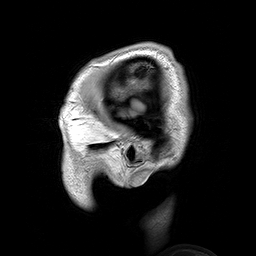Were people utterly inaccurate at judging their body state and reporting on it, clinical medicine would be deprived of a critical tool. Evidence has accumulated that in certain circumstances, some people are evidently able to access information about the physiological processes inside of their bodies, and to report on it. Experiments seem to demonstrate that some people are relatively accurate perceivers of symptoms or physiological state (Jones and Hollandsworth, 1981), (Adam, 1998), and that subjects can be ranked into good or poor estimators of internal state; for instance, with perceivers of heart rate (Schandry, 1981).
When we are actually aware of specific processes inside our bodies and can state this verbally, it would seem that in some fashion unconscious information (or unconscious “information”) has generated or has been transformed into knowledge. However, there is contradictory evidence about accuracy of symptom perception: how good people really are at perceiving various physiological states, and how accurate symptom-reports or other verbal-reports actually are. Many studies have yielded data consistent with the idea that people are not particularly good at accurately reporting on their symptoms or physiological states (Pennebaker, 1982). It is worth pointing out the assertion that people are generally inaccurate about knowing about physiological processes in their bodies reformulates the principle that humans lack epistemological privilege concerning introspective or verbally reported data. In considering the question: are we are likely to be in error when we report on the contents of what is in our minds, or not, it is critical to appreciate the persuasive interpretation of experiments written up in papers such as “Telling More than We Can Know” by the psychologists Robert Nisbett and Timothy Wilson (1977), which seems to show how introspection-based retroactive judgments can are in error. This category of research typically features subjects placed in circumstances where their choices are influenced by variables controlled by experimenters, and who give explanations for their choosing that display incorrect “folk psychological” constructions. Nisbett and Wilson’s analysis can properly interpreted as to cast doubt on the ability of people to know the causes of our behavior and “higher order” information-processing, and can be summed up with their statement that people may possess “little ability to report accurately on their cognitive processes” (p. 246).
However, I assert that this valuable critique of retrospective judgments has been improperly extrapolated to support a broad skepticism about introspection, what I shall call the “received view” or the “overly skeptical view”, which I might sum-up as the belief that introspective data should generally be regarded with skepticism. As has been noted by careful researchers on introspection, (Schwitzgebel, 2006), this more general rejection of introspection certainly goes beyond what Nisbett and Wilson argued: while they do indeed assert that the evidence of numerous studies shows people are poor at using verbal report-based introspection to the cognitive process behind our judging and deciding, they do not support a general disdain for introspective data. Rather, they state that instead of arguing that introspective reports should simply be discredited, while people do not have introspective access to the cognitive processes, they do have such access to the contents of their cognitions. For instance, Nisbett and Wilson (pg. 255) state that introspection can yield forms of knowledge: knowledge about cognitive content, as an everyday person:
“…knows what his current sensations are and what almost all psychologists and philosophers would assert to be “knowledge” at least quantitatively superior to that of observers concerning his emotions, evaluations, and plans”
Furthermore, the “received view” that introspective reports are to be generally regarded with suspicion is in tension with the clinical use of patient introspection, as well as the high accuracy ratings sometimes displayed in experiments where subjects are asked to evaluate their own physiology. Therefore, while showing appropriate regard for data suggesting limits on introspective access to cognitive information (indeed I will suggest that models of body-knowledge should account for this data), I will nonetheless highlight certain clinical and experimental data that support the following assertion, which contradicts the view that introspective data should be generally regarded with skepticism:
There exist cognitive processes that allow people to access internal body-state or physiological information in a way that enables fairly, or even highly, accurate verbal reports. Insofar as this is true, people evidently have some degree of epistemologically privileged access to internal body state or interoceptive information. This relative privilege allows for knowledge of the body, as distinct from mere beliefs.
However, if this is true, some accounting of to what degree or how true it is, with which mitigating conditions, and with what reference to underlying cognitive and neurophysiological mechanisms would be necessary. For that matter, even if true, demarcating the explanatory power of this principle relative to data adequately explained by the “received view” or “overly skeptical view” is of critical importance. It may be that only special or rare abilities are at issue here, and that the people who have privileged access to their internal physiological information are outliers.
